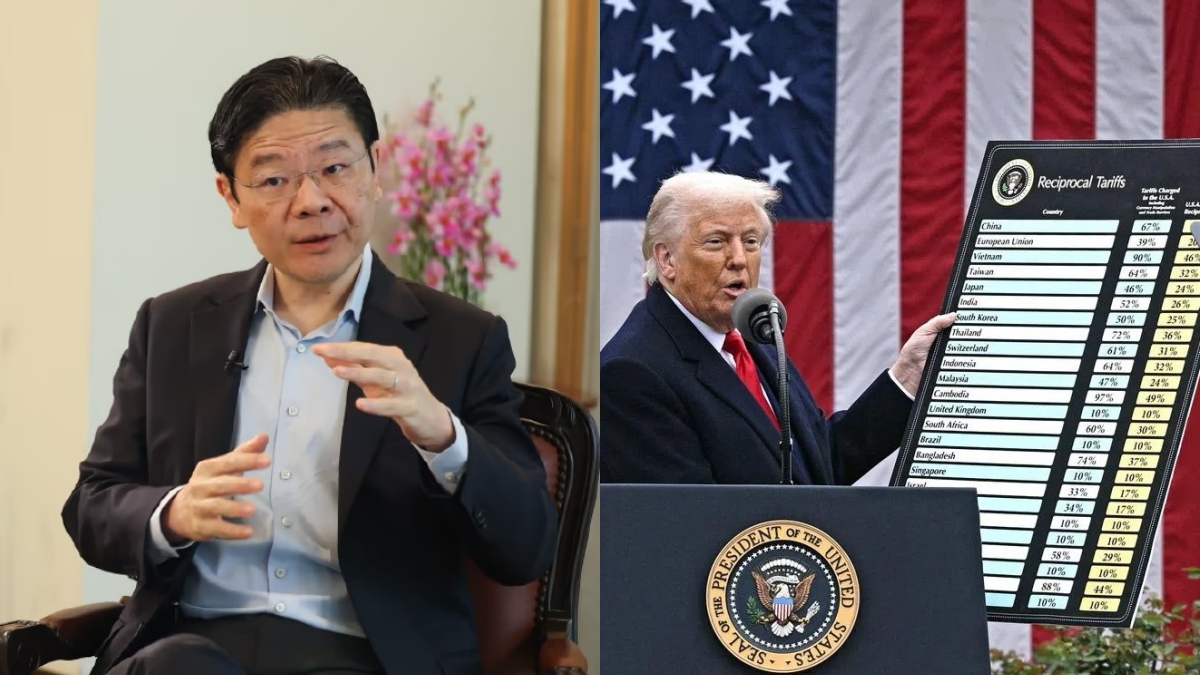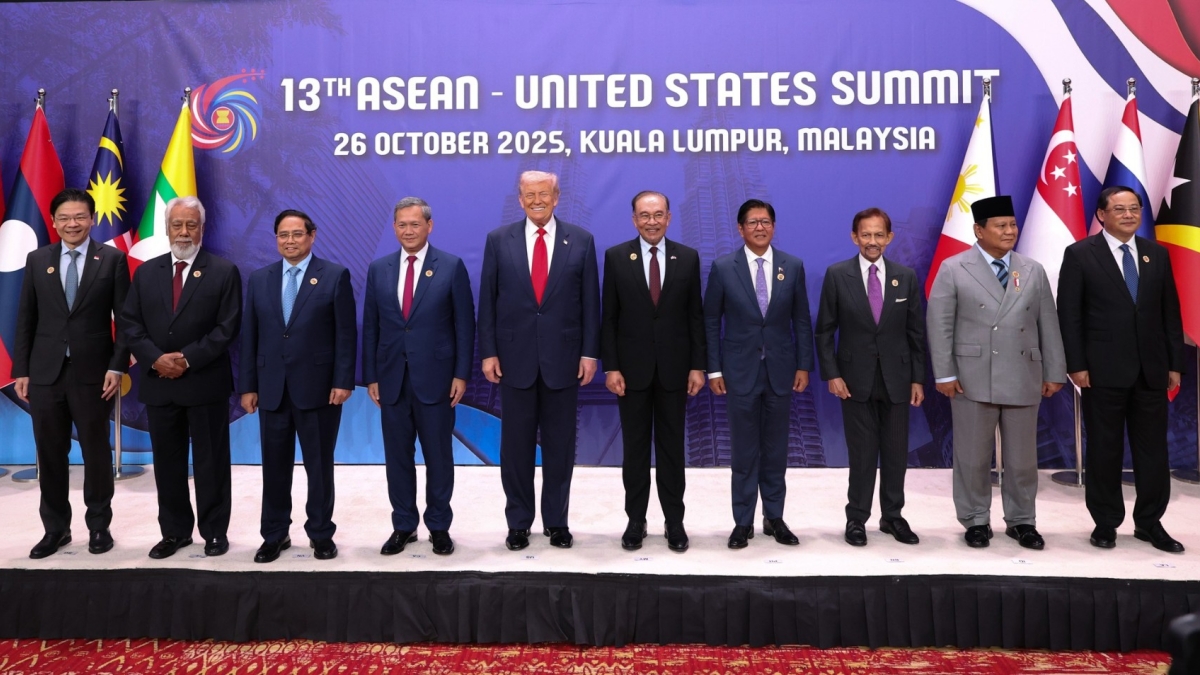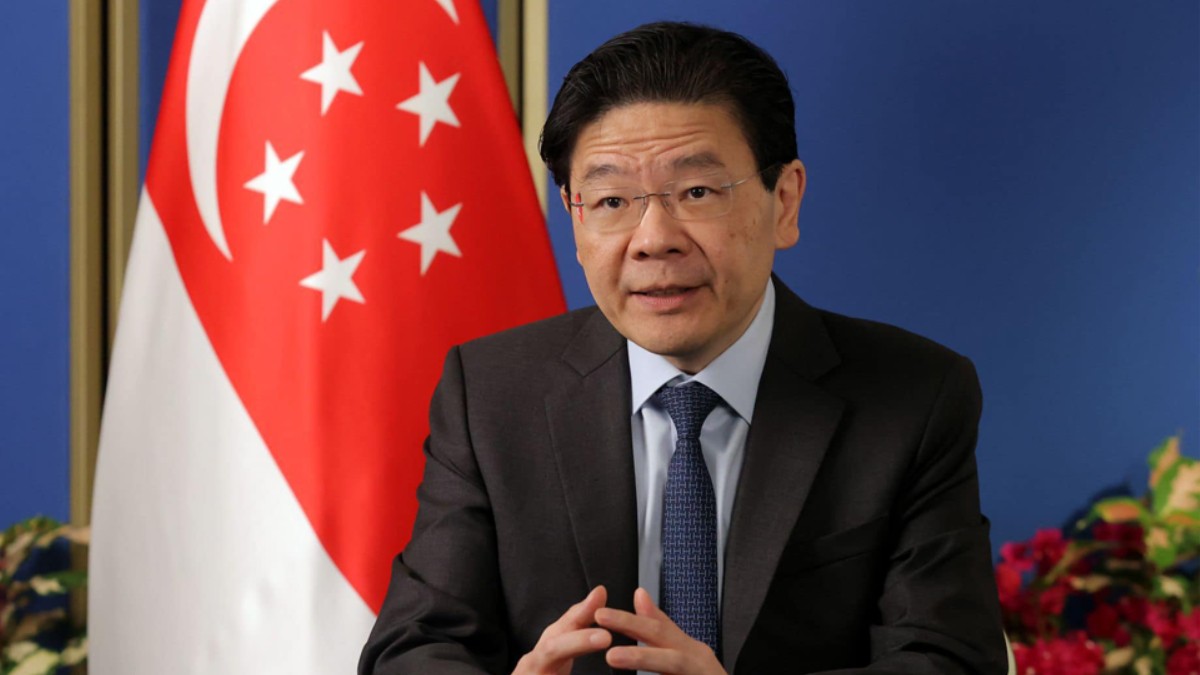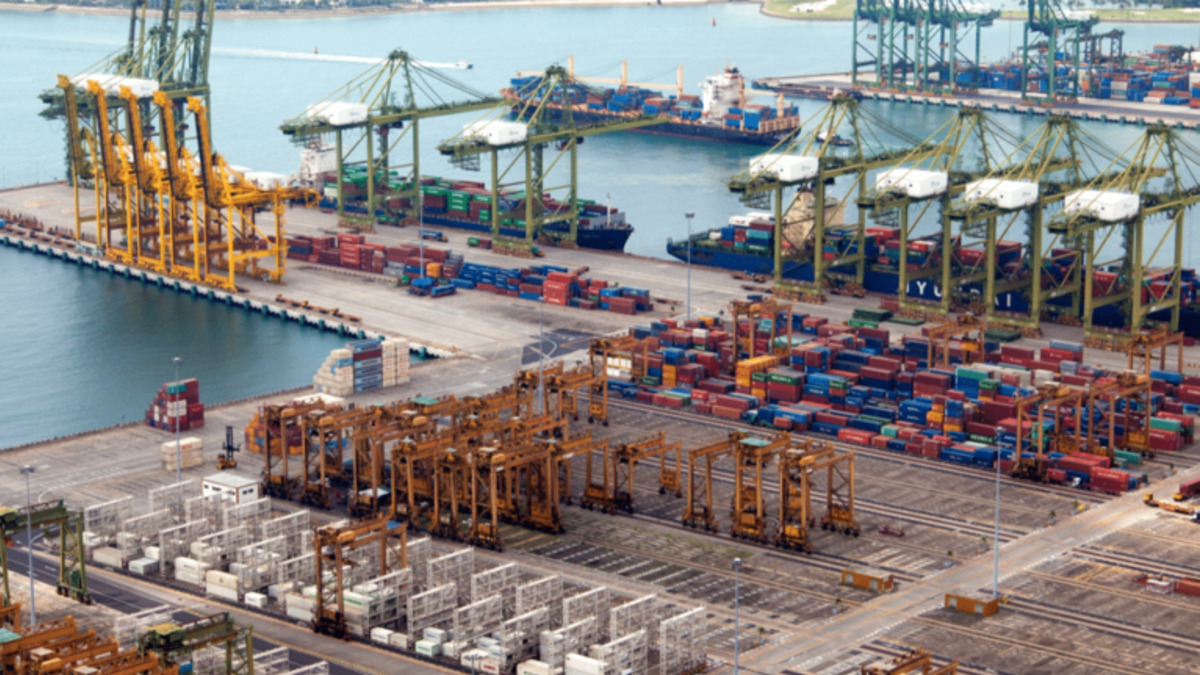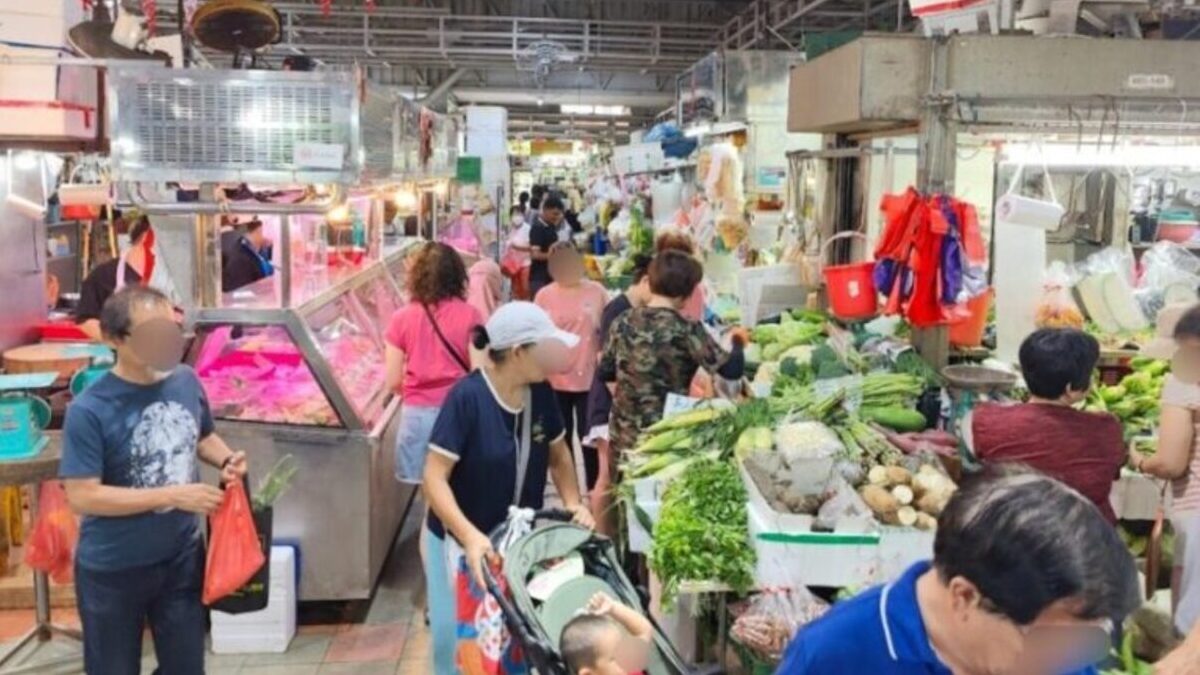US drops tariffs to 0% on selected imports from Thailand, Malaysia and Cambodia in new trade pacts
The United States has approved a 0% import tariff for specific goods from Thailand, Malaysia and Cambodia following new trade agreements announced at the ASEAN Summit in Kuala Lumpur. The decision reverses earlier 19% reciprocal tariffs and marks a shift in Washington’s trade engagement with Southeast Asia.
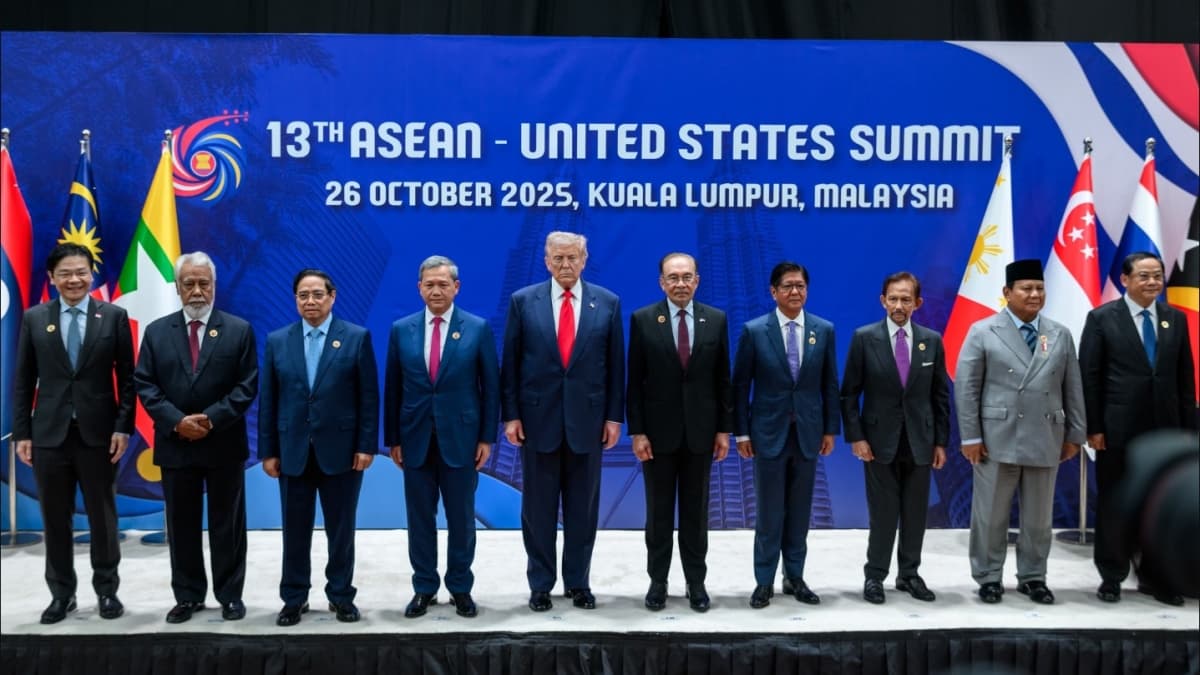
- The United States has approved 0% import tariffs on selected goods from Thailand, Malaysia and Cambodia, reversing an earlier 19% reciprocal tariff.
- The new tariff exemptions were announced during the ASEAN Summit in Kuala Lumpur and are part of broader bilateral trade frameworks.
- Malaysia secured 0% tariffs for key export sectors, including palm oil, rubber-based products and pharmaceuticals.
The United States has formally approved a 0% import tariff on selected goods from three ASEAN member states — Thailand, Malaysia and Cambodia — following the signing of new trade agreements announced during the ASEAN Summit in Kuala Lumpur.
The announcement, authorised by President Donald Trump, reverses a 19% retaliatory tariff previously imposed on the nations.
It forms part of an executive order issued in September, which provided tariff relief to countries that concluded new trade arrangements with the US administration.
According to the White House, the tariff exemptions will take effect progressively, with specific products to be listed under individual bilateral frameworks.
The measure aims to strengthen regional supply chain resilience, promote fair trade practices, and reduce dependency on Chinese exports.
Thailand agreement outlines reciprocal tariff framework
A framework agreement between the US and Thailand was detailed in a fact sheet released by the Office of the US Trade Representative.
It outlines terms for tariff reduction, reciprocal market access, and digital trade cooperation.
Under the deal, the US will maintain a 19% reciprocal tariff on general imports from Thailand, while identifying product categories eligible for a 0% rate.
Thailand, in turn, will remove tariffs on 99% of goods, including US industrial and agricultural products.
The fact sheet states that Thailand will not impose non-tariff barriers on US exports, allowing the import of vehicles meeting US safety and emissions standards, and accelerating access for meat and poultry products certified by the US Food Safety and Inspection Service.
Thailand will also address restrictions affecting digital trade, services and investment, and maintain commitments to purchase approximately US$2.6 billion of US agricultural products annually, including feed corn and soybean meal. Additionally, Thailand will procure 80 US aircraft as part of ongoing commercial arrangements.
Both sides intend to reinforce supply chain cooperation, counter unfair trade practices, and collaborate on export controls.
Negotiations are expected to continue in the coming weeks to finalise a comprehensive trade deal, according to the Office of the US Trade Representative.
Malaysia announces secures 0% tariffs for key export sectors
Malaysia announced that it has secured 0% tariffs for three major export sectors under its new reciprocal trade agreement with the US.
Tengku Zafrul Aziz, Minister of International Trade and Industry, said the exemption covers palm oil, rubber-based products, cocoa, aircraft components, spare parts, and pharmaceuticals.
According to Tengku Zafrul, these sectors account for an estimated US$5.2 billion, or roughly 12 per cent of Malaysia’s total exports. He added that 1,711 tariff lines have been exempted from the previous 19% levy.
“The US is one of our largest trading partners and a key destination for Malaysia’s major exports, including electrical and electronic products, industrial equipment and aerospace components,” he said, noting that the new deal will strengthen Malaysia’s competitiveness and deepen bilateral trade links.
The reciprocal agreement, signed in Kuala Lumpur, builds upon the 2004 Trade and Investment Framework Agreement, which granted US exporters preferential access to Malaysia’s market for industrial and agricultural goods.
Under Executive Order 14257, the US will continue applying a 19% tariff on general Malaysian exports, while exempting selected products aligned with its strategic partners list.
Commercial commitments and investment provisions
Beyond tariffs, the Malaysia–US agreement includes substantial investment commitments and commercial transactions.
Malaysia agreed to invest US$70 billion in US capital funds and purchase US$150 billion worth of US semiconductors, aerospace components and data centre equipment.
Other provisions include the annual purchase of 5 million tonnes of liquefied natural gas, US$204.1 million worth of coal and telecommunications products, and the procurement of 30 aircraft with an option for another 30.
The framework also strengthens cooperation on digital trade, labour rights, intellectual property protection, and national security.
It will enter into force 60 days after both nations complete their domestic ratification processes.
Tengku Zafrul noted that the agreement formalised prior understandings announced in Parliament earlier this year.
“What has been signed today is an improvement over what was previously agreed, providing Malaysia with more secure and predictable access to the US market,” he stated.
Cambodia expands market access through new trade deal
The US and Cambodia have also concluded a reciprocal trade agreement covering tariff elimination, regulatory transparency, and environmental and labour protections.
A fact sheet from the Office of the US Trade Representative said the agreement caps reciprocal US tariffs on Cambodian goods at 19%, while identifying selected items eligible for 0% duty.
In return, Cambodia will abolish tariffs on nearly all US goods and refrain from imposing quotas unless mutually agreed.
It also pledged to ensure non-discriminatory access for US agricultural products and accept US standards for motor vehicles, pharmaceuticals and medical devices.
The agreement includes provisions for transparency, import licensing, and the sharing of investment data to prevent trade diversion.
Both sides expect the deal to take effect in the coming weeks, with either party able to terminate it with six months’ written notice.
Singapore pharmaceutical firms await clarity on US tariff exemptions and trade talks
Separately, Singapore’s Minister of State for Trade and Industry Gan Siow Huang earlier told Parliament on 14 October that local pharmaceutical companies are awaiting confirmation on whether their expansion plans in the US will qualify for tariff exemptions.
The US had earlier announced a 100% tariff on branded pharmaceutical products effective 1 October, though the measure’s implementation was delayed to allow further negotiations.
Gan said Singapore is engaged in talks with Washington on a preferential tariff arrangement for pharmaceutical exports, which average S$3.7 billion annually.
Workers’ Party MP Louis Chua questioned whether zero tariffs remain achievable, noting that the European Union and Japan have already finalised their respective agreements with the US.
Gan responded that negotiations remain confidential but ongoing, stressing that Singapore must stay pragmatic amid global trade uncertainty.


